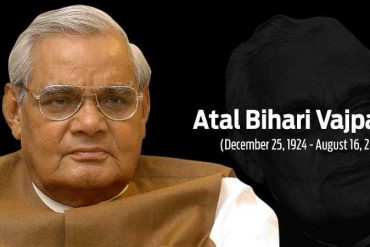A series of low intensity blasts on August 1 left the residents of Pune in a tizzy. For a city that is still reeling under the after-effects of the German Bakery Blasts, the minor explosions at Jangali Maharaj Road, Balgandharva Theatre and Garware Chowk were a perfect demonstration of how the terror could strike at any moment to ruin a place that is touted as the Pensioner’s Paradise and the Oxford of the East amongst other eminent titles.
On February 13, 2010, a bomb carefully wrapped in a knapsack, went off at the city’s crowded place, Koregaon, an iconic area which left 17 dead and 64 others injured. Post the blasts, as always, the police swung into action and ordered for 300 CCTV cameras to be put up across Pune’s strategic locations. The state Anti-terrorism squad (ATS), in one of its prompt replies arrested Mirza Baig, a suspected Hizbul Mujahideen member, in the same year and a case was registered against him in the District and Sessions Court of Pune. However, till date, the ATS has arrested only Mirza Baig in connection with the case. The perpetrators of the German Bakery Blast are still at large.
Within a span of only two years, the terrorists are able to plant six bombs at the busiest places of Pune without a trace. It’s another thing that the two of the bombs were defused and the rest of them could not trigger huge explosions due to the dampness in the rains and the loose connections in the wiring.
Pune’s Municipal Commissioner Gulabrao Pol was soon to point out that it could be well, be a mischief-monger’s activity. With due respect to you, Sir, are you trying to undermine the seriousness of the issue and cover it with a blanket of mischief? To come up with a lame comment while being in such a high command shows the readiness of the city to deal with such grim issues that have put several lives on stake.
But, the fact of the matter remains the same. Pune is no longer the safe bet and surely, not the safest city as it was considered to be. Retd. Commander Ravindra Pathak, who has been living in the city for more than a decade, by now, claims that Pune is no longer the Pensioner’s paradise. “The reasons behind the blasts are the public apathy towards the issue of safety and the Government’s failure at the Intelligence level to avert such crisis beforehand. The citizens are not alert enough to call the police when they notice unattended parcels lying around,” says Pathak. He also stresses the influx of immigrants as another reason behind the blasts.
It is quite clear that the terrorists can strike at their whims and fancies. Their work has also been made simple by the constant infighting amongst the political parties on communal lines, corruption and stifling bureaucracies. “The main objective of the terrorists is to create terror in the minds of the people and disturb the mundane activities of the city,” says Manohar Joshi, the Senior Inspector of the Deccan Police Station, Pune. Although, Pakistan terror outfit, Hizbul Mujahideen, is assumed as the main suspect behind the attack, Joshi is quick to not rule out the possibility of other terror groups.
Journalist Shashwat Gupta Ray, who has been covering the crime beat for over six years, feels that a lot of sleeper cells have been active in the city over the past few months. “The members of terror outfits lie low with the rest of the students and the engineering community as Pune is the hub for student’s education and has a booming Software Industry. It is very easy for them carry out their activities without being recognized,” says Ray who writes for Sakaal times, a local Pune newspaper.
However, for many students, Pune still remains the safe city, albeit a few concerns. Says Hardik Contractor, a student of Symbiosis Institute of Media and Communications College,” If one looks at the crime rate, then it is by far one of the safest cities to live in. But the only problem with the city is the existing presumption that terrorism cannot strike in Pune. The city still trivializes the issue of terror campaign which could create major problems in future.” It’s hard to miss the gravity in Hardik’s words. The blasts have yet again, proved the country’s paralysed intelligence services and its lackadaisical approach towards the security measures. Inspite of the demands to set up 300 CCTVS, so far, the Municipal Authorities have planted only 70 of them.
It is certainly not the start Sushil Kumar Shinde would have expected as the new Home Minister. Now it remains to be seen if he can end his job on a good note or on an early road.



